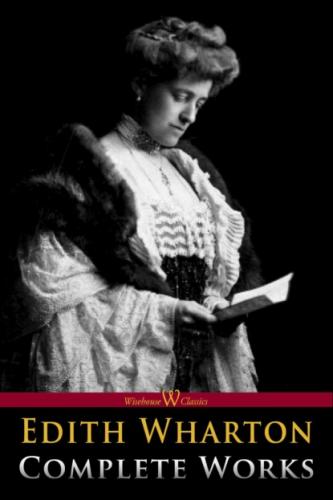Dear Guy: I am sure we can never be happy as anything but friends, & I send you back the ring which will be far better on someone else’s hand. You will get over your fancy, & I shall Always be, Your Affectionate Cousin G.R.
To Guy Hastings Esqr.
It was soon over, & she laid the pen down & pushed the paper away quickly, covering her eyes with her hand. The clock, striking the hour on the chimney-piece, roused her with a start. “I suppose I had better take this ring off,” she said, slowly, gazing at the hoop of diamonds. “There is no use in hesitating—or the battle is lost. There—what is it, a ring? It will be replaced by another (with bigger diamonds) tomorrow afternoon.” She drew it off hurriedly, as though the operation were painful, & then looked at her unadorned hand. “You change owners, poor little hand!” she said softly. Then she kissed the ring & laid it away. After that it was easier to go on with her next note, though she wrote two copies before she was satisfied that it was proper to be sent to the great Lord Breton.
The note finally ran thus:
My dear Lord Breton: I was much flattered by your offer, which I accept, remaining Yours truly
(I shall be at home tomorrow afternoon.) Georgina Rivers.
“Like answering a dinner-invitation,” commented Georgie; “but I can’t make it longer. I don’t know what to say!”
—————
II.
Enter Lord Breton.
“Auld Robin Gray cam ‘a courtin’ me.”
Lady Barnard.
Let it be understood by the reader, in justice to Miss Rivers, that, before she despatched the note with which our last chapter closes, she shewed it to her mother. As she had expected, that lady offered some feeble opposition to her daughter’s bold stroke. It was early the next morning & Mrs. Rivers—a nervous invalid, of the complainingly resigned sort—was still in her bedroom, though the younger members of the family, Kate, Julia & Tom, had breakfasted & been called to their lessons, by Miss Blackstone, their governess. Georgie therefore found her mother alone, when she entered with the answer to Lord Breton’s letter in her hand; & it was easy, after one glance at the small figure on the couch, with faded hair, pink lids & yielding wrinkles about the mouth, to see why, though “Mamma would be a little scandalized” it would be easy to “settle that.” If Mrs. Rivers had ever been a beauty much mourning & malady had effaced all traces thereof from her gentle, sallow face framed in a heavy widow’s cap; she was one of those meek, shrinking women who seem always overwhelmed by their clothes, & indeed by circumstances in general. She greeted her daughter’s entrance with a faint smile, & observed in a thin, timid voice “that it was a beautiful morning.” “Yes,” said Georgie, kissing her, “jolly for hunting. How did you sleep, little Mamma?” “Oh, well enough, my dear—as well as I could have hoped,” said Mrs. Rivers, sighing. “Of course Peters forgot my sleeping-draught when he went into West Adamsborough yesterday, but what else could I expect?” “I am very sorry! The man never had his proper allowance of brains.” “Nay, my dear, I do not complain.” “But I do,” said Georgie, impatiently. “I hate to be resigned!” “My child!” “You know I do, Mamma. But I want to speak to you now. Will Payson be coming in for anything?” “Indeed I can’t tell, my dear.” (Mrs. Rivers was never in her life known to express a positive opinion on any subject.) “Very well, then” said Georgie, “I will make sure.” She locked the door, & then came & sat down at her mother’s feet. “Now, Mamma, I am going to shock you,” she said. “Oh, my dear, I hope not.” “But I tell you that I am,” persisted Georgie. “Now listen. I have decided that I shouldn’t be happy with Guy, & I have written to tell him so.” Mrs. Rivers looked startled. “What has happened, my love?” she asked anxiously. “I hope you have not been quarrelling. Guy is a good boy.” “No, we have not been quarrelling—at least, not exactly. But I have thought it all over. Guy & I would never get on. And I am going to accept Lord Breton!” “Good gracious, my dear!” cried Mrs. Rivers, in mingled horror & admiration at her daughter’s sudden decision. “But what will Guy say? … Have you reflected? …” “I have set Guy free; therefore I am at liberty to accept Lord Breton.” “But—so soon? I don’t understand,” said poor Mrs. Rivers, in humble perplexity. “Of course the engagement will not be announced at once; but Lord Breton’s letter requires an answer & I have written it.” She handed the note to her mother, who looked over it with her usual doubtful frown, but whose only comment was a meek suggestion that it was very short. “I can’t write four pages to say I’ll accept him,” said Georgie, sharply; & Mrs. Rivers, reflecting that her unusual crossness was probably due to concealed agitation, only said mildly, “but poor Guy.” “Why do you pity Guy, Mamma? He will be rid of me, & if he is really in love with me—why, men get over those things very quickly.” “But I cannot help thinking, my dear …” “Don’t, Mamma!” cried Georgie, passionately, “don’t think. I have made up my mind, & if you talk all day you can only make me cry.” The last word was almost a sob, & Georgie turned sharply away from her mother. “I am afraid you are unhappy, darling child.” “Why should I be?” burst out Georgie, with sudden fierceness. “Don’t be so foolish Mamma! Why should I be unhappy? It is my own choice, & I don’t want to be pitied!” She ran out of the room as she ended, & Mrs. Rivers’ anxious ears heard her bedroom door slam
